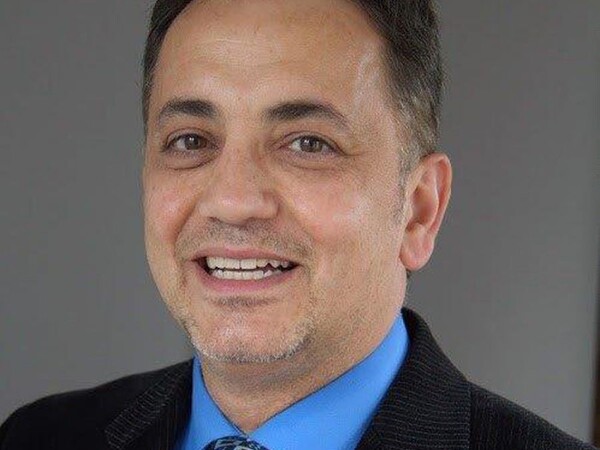Comprehensive Research Experience for Medical Students (CREMS) Program
Description
CREMS for Medical Students
The Comprehensive Research Experience for Medical Students (CREMS) Program, offered by the University of Toronto MD Program, is an opportunity for University of Toronto medical students to participate in full-time research under the supervision of a faculty mentor.
The 10-week summer program is for students between their first and second, or second and third years of medical school. Each student receives a stipend of $6,000 CAD; CREMS contributes $2,750, and the supervisor is responsible for $3,250. The Toronto Dementia Research Alliance (TDRA) will fund the research supervisor’s portion of the stipend for a select number of students pursuing dementia research, specifically for those working with researchers within the TDRA community or at TDRA sites. Students should apply as per usual based on CREMS guidelines, and TDRA will pick the funding based on the project.
For more details on the CREMS Program, please visit their website: https://md.utoronto.ca/summer-research-programs
CREMS MD/PhD Stream
The CREMS program also offers an MD/PhD stream, where students design their own project and find a qualified research supervisor. The remaining details, such as the 10-week research term, a $6,000 stipend, and the option to complete the research term between years 1 and 2 or between years 2 and 3 of your program of study, are the same as those in the traditional CREMS program. Again, TDRA will cover the research supervisor’s portion of the stipend for a select number of students pursuing dementia research, specifically those working with researchers from the TDRA community or at TDRA sites.
Apply
CREMS- Medical Students
Student application deadline has passed. Please contact crems.programs@utoronto.ca with any questions.
CREMS- MD/PhD
Student application deadline has passed. Please contact crems.programs@utoronto.ca with any questions.
Meet the 2023 CREMS Student & Supervisor
On behalf of research supervisor Dr. Amer Burhan, TDRA is pleased to be co-funding CREMS student Pooja Sankar. Details of their research project are found below:
Project Title: Cognitive and gait effects of repetitive transcranial magnetic stimulation in patients with treatment resistant late-life depression and motoric-cognitive risk syndrome (CogniTReaD-TMS)
Field of Research: Neuropsychiatry, dementia, brain stimulation, mental health
Project Description: Motoric-cognitive risk syndrome (MCRS) is an illness that can precede dementia; a meta-analysis found a significant association between MCRS and both incident cognitive disability and dementia. A case of MCRS can be confirmed by measuring gait speed and dual-task cost (DTC), which is the slowing down of usual gait while performing a cognitive task. People living with treatment resistant depression (TRD) are also at risk for developing dementia, and studies have shown that many people living with TRD are positive for the MCRS profile. This interrelated triad perpetuates negative health outcomes. However, repetitive transcranial magnetic stimulation (rTMS) has proven to be an effective and safe treatment for late-life TRD. This study will include participants living with both late-life TRD and MCRS. Participants will be treated with rTMS, and it is hypothesized that their MCRS will improve. A randomized trial and systematic review will be conducted for this project.

Pooja Sankar is a second-year medical student at the University of Toronto. Her interest in geriatrics and psychiatry stems from her time spent volunteering and working with older adults with dementia and other complex conditions. Pooja graduated from the University of Guelph’s Biomedical sciences program. She enjoys being involved in medical education related projects such as Toronto Notes and contributing to curriculum development. Pooja also enjoys learning about and supporting quality improvement projects to improve senior care in hospitals. With this CREMS project, Pooja is excited to draw on her previous experiences working with geriatric patients while expanding her knowledge of the vast field of neuropsychiatry.

Dr. Amer Burhan is based at Ontario Shores Centre for Mental Health Sciences, where he is a Geriatric Psychiatrist, Physician-in-Chief, and Endowed Chair for Applied Mental Health Research. Dr. Burhan is an Associate Professor in Psychiatry at the University of Toronto, and an Adjunct Research Professor in Psychiatry at Western University. Further, he is an associate scientist at the MacDonald Franklin Operational Stress Injury Research Centre and the Lawson Health Research Institute. Within TDRA, Dr. Burhan leads the Neurotechnology Research Working Group (RWG), and works with the Caregiving and Long-Term Care RWGs. His research focuses on complex mental health presentation in old age and therapeutic brain stimulation.
Past CREMS Students & Supervisors
Summer 2022
Student: Elizabeth Boyd
Supervisor: Dr. Krista Lanctôt
Project Title: Mild Behavioral Impairment: Cognitive Profile and Brain Atrophy in the Early Stages of Neurodegenerative Disorders
Elizabeth Boyd joined Dr. Krista Lanctôt’s lab at Sunnybrook. Her study aimed to provide insights about the neural mechanisms of these early stage behavioural symptoms, by analyzing a dataset called ‘COMPASS-ND’, which is made available by the Canadian Consortium for Neurodegeneration in Aging (CCNA). This dataset includes various neurodegenerative disorders, and many of the subjects have been assessed with the mild behavioural impairment (MBI)-Checklist.
Summer 2021
Student: Daksh Datta
Supervisor: Dr. Krista Lanctôt
Project Title: Neural Correlates of Neuropsychiatric Symptoms Across Neurodegenerative Disorders
Daksh Datta joined Dr. Krista Lanctôt’s lab at Sunnybrook. His summer project was analyzing the Canadian Consortium on Neurodegeneration in Aging’s dataset to find common brain changes underlying neuropsychiatric symptoms across dementias.
